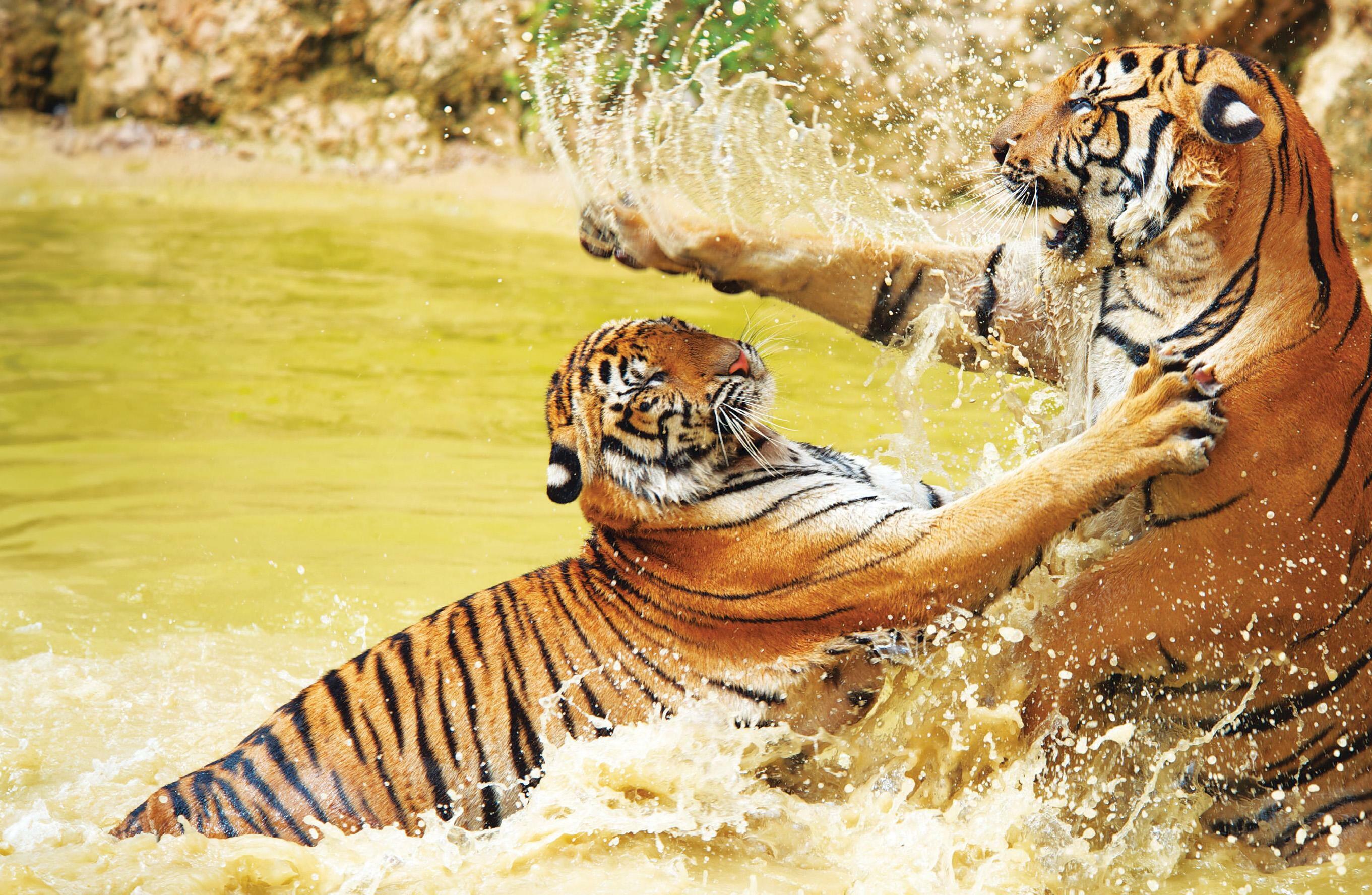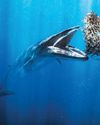
In March, we asked you what would make a truly un-put-downable issue of Science+Nature. We put you in the editor’s seat and you voted for the subjects you most love reading about. Animal stories were by far your favourite, and tigers came out on top.
These mighty predators have inspired awe and wonder since ancient times. Today, scientists are discovering that tigers are stranger than myths and even more epic than legends. Let’s follow the tracks of these fascinating and fierce creatures to find out why fact beats fiction every time.
Biggest of the big
Big cats come in lots of shapes and sizes, but tigers take the crown. Their bodies are up to three metres long, with another metre of tail on top. A male tiger standing on its hind legs towers above a typical human, and weighs more than a motorbike.
Despite their size and power, tigers don’t get lucky every time they hunt. They can accelerate to up to 40 miles per hour, but are only built for short bursts of speed. Most of their prey have evolved to run fast too, and can mostly go for longer. It is estimated that for every 20 animals a tiger chases, it only catches one.
However, being supersized does give tigers a wider choice of food. Pouncing up to eight metres on powerful back legs, they use their huge bodies to attack deer and wild boar. Larger tigers are strong enough to tackle crocodiles, buffalo and even young elephants. To increase their chances, the cats ambush their prey, creeping up as close as possible before striking.
On the prowl
This story is from the Issue 75 edition of The Week Junior Science+Nature UK.
Start your 7-day Magzter GOLD free trial to access thousands of curated premium stories, and 9,000+ magazines and newspapers.
Already a subscriber ? Sign In
This story is from the Issue 75 edition of The Week Junior Science+Nature UK.
Start your 7-day Magzter GOLD free trial to access thousands of curated premium stories, and 9,000+ magazines and newspapers.
Already a subscriber? Sign In

Camera Obscura
Imagine stepping inside a dark room, where the only source of light comes through one small hole in the wall.

MANCHESTER SCIENCE FESTIVAL
From 18-27 October, shoppers at the Arndale shopping centre in Manchester, England, will face a giant spider.

Should musicians stop touring?
Multiple concerts travelling around the world have a big impact on the environment.

Are ghosts real?
Plenty of people believe in ghosts, but it's hard to find proof.

SMASH STEREOTYPES
In an extract from his prize-winning book, scientist and writer Adam Rutherford shows you how to use the power of science to fight racism. This chapter, titled Myth-Busting, is all about sport.

Animal awareness
What would it feel like to be another animal?

Hamza Yassin
Go behind the camera with a wildlife filmmaker.

WILDLIFE WATCH
Ben Hoare goes on a safari from his sofa to discover how nature documentaries are made.

Big bum breakthrough
A team of researchers who found out that mammals can breathe through their bottoms have won a prize at the lg Nobel awards.

A jaw-dropping undersea snap
A photograph of a Bryde's whale feeding on a heart-shaped \"bait ball\" of sardines has won the Ocean Photographer of the Year contest.